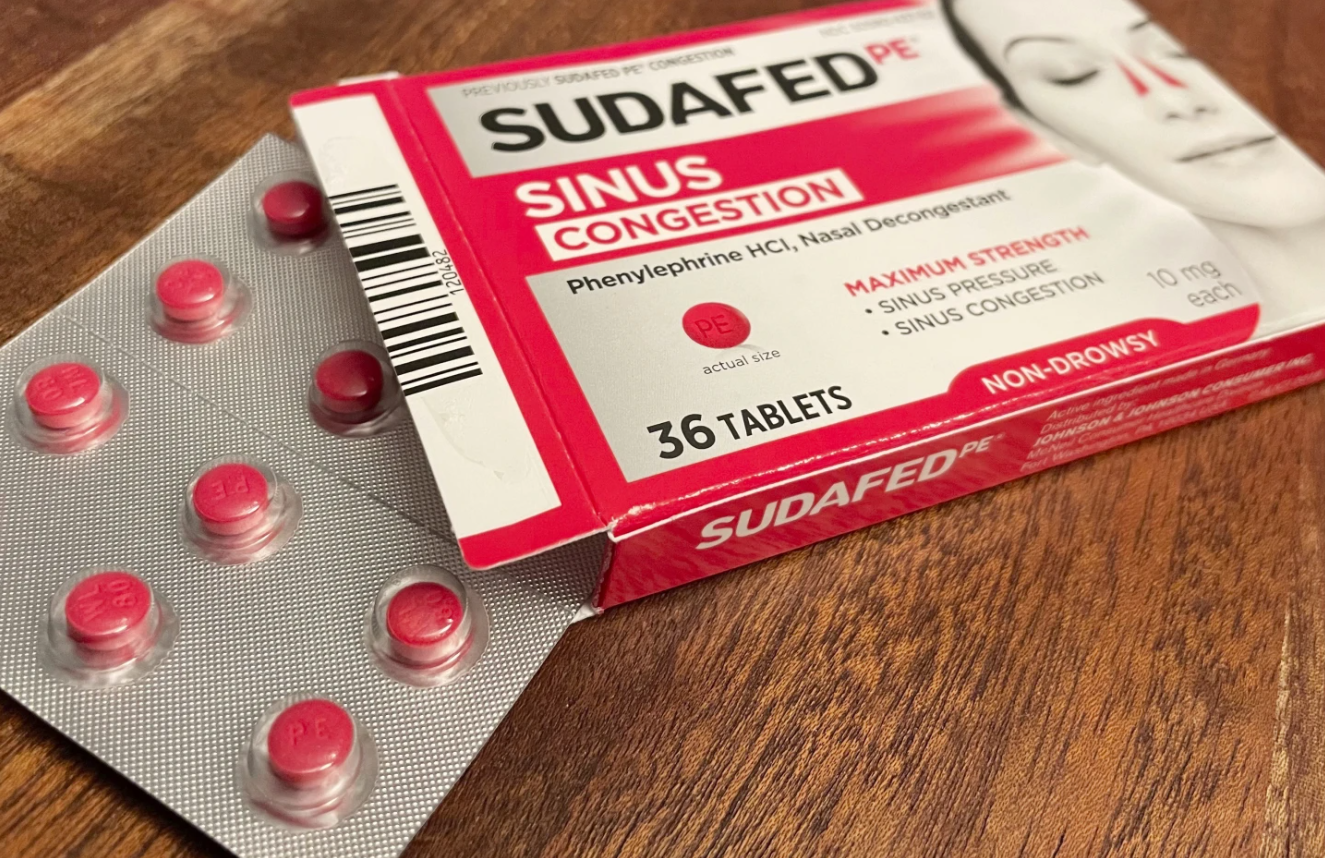Changes are on the horizon for the cold and cough medicine aisle at your local pharmacy. U.S. health officials are initiating the phase-out of phenylephrine, a widely used decongestant found in numerous over-the-counter remedies, after concluding it fails to effectively alleviate nasal congestion.
Phenylephrine, a key ingredient in popular products like Sudafed and DayQuil, has long been under scrutiny for its efficacy. Recently, the Food and Drug Administration (FDA) formally proposed banning its use in oral medications, such as pills and liquid solutions. This move marks the start of a regulatory process that could compel manufacturers to either reformulate their products or remove them from the shelves.
This development is a victory for academics who have questioned the drug’s effectiveness for years, including researchers at the University of Florida who petitioned the FDA in 2007 and again in 2015 to reevaluate phenylephrine. For consumers, this shift will likely mean turning to alternative treatments, such as pseudoephedrine-based medicines that have been available only behind pharmacy counters for nearly two decades.
Doctors argue that this change will ultimately benefit consumers by steering them toward medications that truly work.
“Right now, people walk into the pharmacy, see a vast array of products, and often pick one that doesn’t help at all,” said Dr. Brian Schroer of the Cleveland Clinic. “By removing that option, it will be easier for them to choose something effective.”
Why the FDA is Acting Now
The FDA’s decision follows a unanimous vote by federal advisors last year declaring that oral phenylephrine does not relieve nasal congestion.
Recent large-scale studies found phenylephrine to be no more effective than a placebo at clearing nasal passages. The advisors also revisited studies from the 1960s and 1970s that had initially justified its use, finding significant flaws and unreliable data.
The ruling applies exclusively to phenylephrine in oral medications, a market valued at around $1.8 billion annually in the U.S. Phenylephrine remains effective in nasal sprays, though those products are far less commonly used.
Phenylephrine rose to prominence in cold and allergy medicines after a 2006 law mandated that pseudoephedrine-based products be sold from behind the pharmacy counter due to their potential misuse in producing methamphetamine. To maintain easy access for consumers, manufacturers reformulated their products with phenylephrine, branding them as “PE” versions of familiar names.
Alternatives for Treating Congestion
For those who prefer oral medications, pseudoephedrine-based products like Sudafed or Claritin-D are still available behind pharmacy counters without a prescription, but customers must present a photo ID.
Over-the-counter options for nasal relief include saline sprays and rinses, which can quickly clear mucus. For more sustained relief from seasonal allergies, doctors recommend daily-use nasal steroids like Flonase, Nasacort, and Rhinocort.
“These steroids are the most effective daily treatment for congestion,” said Schroer, “but they’re not ideal for as-needed use.”
For immediate relief, antihistamine sprays like Astepro are effective, and phenylephrine-based nasal sprays will continue to be available for purchase.
Why Oral Phenylephrine Falls Short
Experts say the drug’s ineffectiveness stems from how it’s metabolized. Once swallowed, phenylephrine is rapidly broken down in the stomach, preventing it from entering the bloodstream and reaching nasal tissues.
“This is a good drug, but it doesn’t work when taken orally,” said Leslie Hendeles, professor emeritus at the University of Florida College of Pharmacy. Hendeles and his team have authored multiple studies on phenylephrine, finding that even doses 400% higher than the current recommendation fail to alleviate nasal stuffiness.
Further increasing the dosage could pose serious safety risks, including dangerous spikes in blood pressure, according to Randy Hatton, another University of Florida professor involved in the research.
Despite its ineffectiveness as a decongestant, phenylephrine is used in hospitals to treat critically low blood pressure during surgery, Hatton added.
What Comes Next?
Oral phenylephrine products won’t disappear overnight. The FDA must follow a detailed process to remove the drug from its list of approved over-the-counter medications.
The agency is required to accept public comments for six months before reviewing feedback and issuing a final decision. Even after that, companies will likely have a year or more to comply by reformulating or withdrawing their products.
Manufacturers could potentially delay the process further by requesting additional hearings.
For now, the Consumer Healthcare Products Association, which represents pharmaceutical companies, is advocating for phenylephrine’s continued availability, stating that consumers deserve “the option to choose the products they prefer for self-care.”
Hatton and his colleagues strongly disagree. “Giving people the choice of something that doesn’t work isn’t a real choice,” he said.
Source: https://apnews.com/




